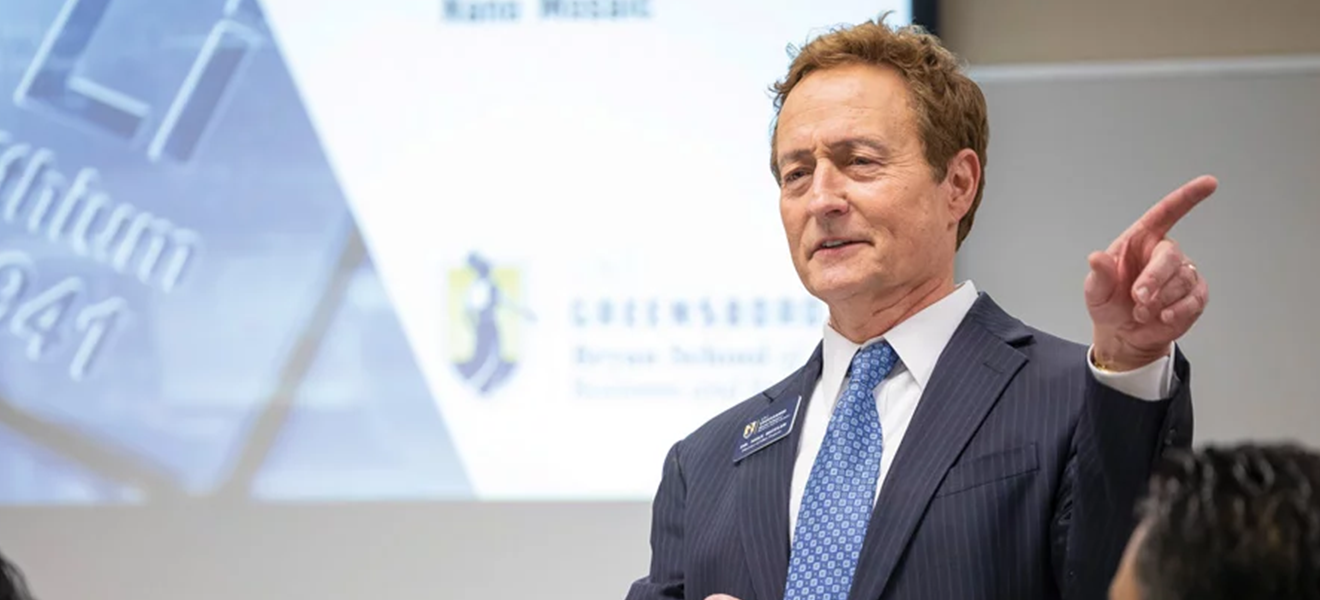Lyndsy Gallins says it was a lightbulb moment.
“I thought, ‘Maybe I should reach out to Dr. Mike Beitler.’ It felt like it was right in the nick of time — I felt grateful to have the contact,” she said in reference to the Director of MBA Capstone Projects at UNC Greensboro’s Bryan School of Business and Economics.
Lyndsy and her husband Peter run Gallins Family Farm. They first sought to consult with the Bryan School in 2020, when the farm needed help developing an efficient data management system to improve daily operations and client communication. Through the Bryan School’s MBA Capstone program, a team of student consultants was able to deliver a time-saving solution.
When the lightbulb went off, Lyndsy decided to make the call once again to see if Beitler’s MBA students would be able to step up to the challenge.
Gallins Family Farm collects more than 1 million pounds of organic waste from 160 different locations across the North Carolina Piedmont Triad each year and uses a clean, reliable process to recycle that food waste into Carolina Dynamite Compost. Known currently as a small, local farm, the family business is at somewhat of a crossroads.
“You can spend a lot of time asking what kind of equipment or piece of software do I need — and for us being small, we want to grow,” said Peter Gallins. “We don’t want 1,000 emails coming in without a pickup truck.”
In 2021, the family celebrated 10 years in business. The farm maintains a strong presence in the commercial compost collection sector, serving both large organizations and residential households. But the family’s goal is to expand its services to 1,000 households.
With growth in mind, a team of UNCG MBA students — Joe Ames, Mike Balbuena, Tim Herter, and Mary Lesa Pegg — got to work. They were asked to assist in a couple of areas in particular: streamlining operations with new accounts receivable and continued customer communication improvement.
Over a Zoom call in early December, the team presented two main recommendations to the Gallins family — one to adopt a subscription model for the farm’s residential accounts and another to leverage research to target new customers with marketing efforts.
“A strong marketing team could come through and put together a strong campaign for you,” said Pegg. “I think you could see things really scale.”
The team’s presentation also delved deeper into residential customer communication and the reality that the farm will face competition from other compost providers in the region.
Beitler, who also serves as senior lecturer in the Bryan School’s Department of Management, describes the Capstone course as a transition from the academic to the business world, providing a unique opportunity for companies to work with business-savvy students committed to innovative and efficient solutions.
During the Zoom call, Peter expressed his appreciation for the team’s gift of intellectual capital. Lyndsy echoed the sentiment, hinting the team had touched on a few items they’d been on the fence about.
“We just want to say thanks,” said Peter.




